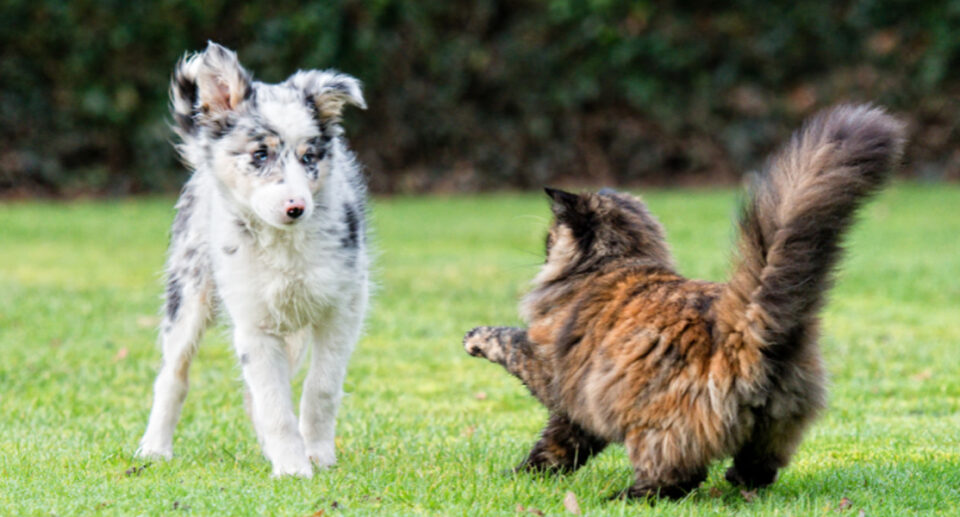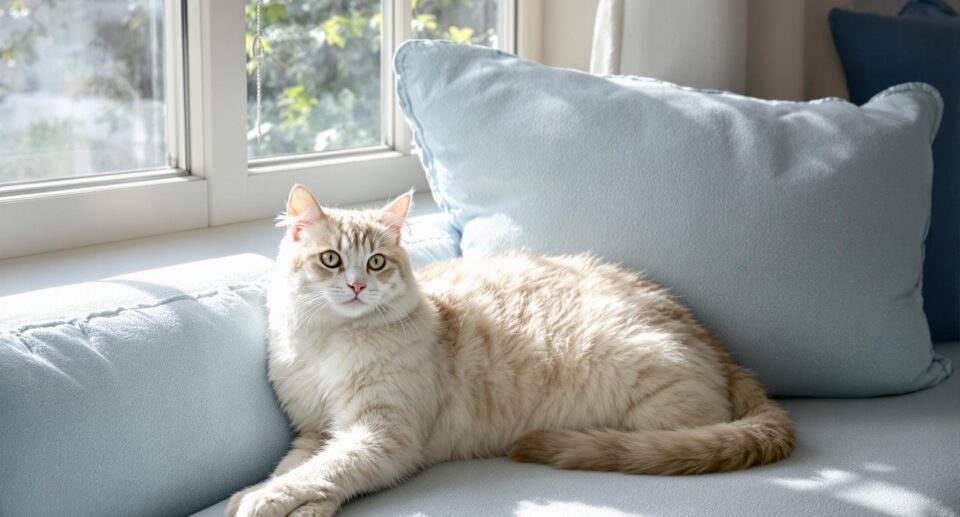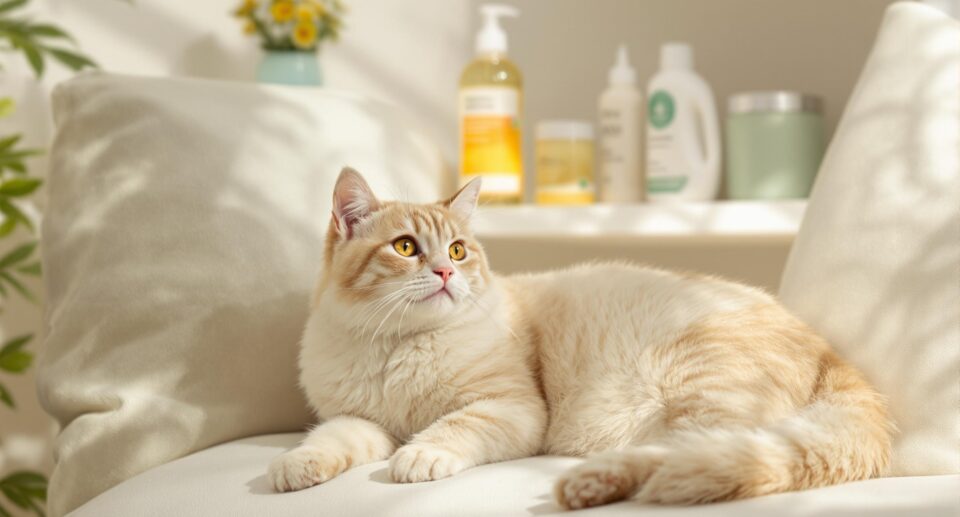
What happens when you love your pets, but they don’t seem to love one another? Fights between pets in a household can be scary and may sometimes result in serious injuries. Here’s what you can do to help your pets live together in harmony.
Are Your Pets Playing Or Fighting?
Perhaps your pets aren’t fighting at all. Though they may create a ruckus as they chase one another, growl, and squabble, your pets may be simply bonding in a way that is natural to them. Both dogs and cats play-fight with their siblings and parents when they’re young. They can even learn to play-fight amicably with animals outside their species.
During play, your pets will have loose, relaxed body language. Your bigger pet may stay low to the ground to accommodate a smaller pet. They may softly bite one another, but generally will not hurt one another or draw blood.
Dogs, in play, pat the floor with their front paws in a “play bow.” A playful cat may swish their tail, while an upset cat will arch their back and hiss.
Why Pets Fight
In the wild, animals must fight over resources to survive. In our homes, there’s plenty of food, toys, and attention to go around, but our pets may still get possessive from time to time.
Pets are generally good at communicating with one another when they need space. For example, one of your dogs may growl at the other when they interrupt their nap. Or, your dog may growl at your cat when he gets too close to her food. Growling is a normal, natural way for animals to say, “please back off,” to one another. If your pets do not respect one another’s boundaries, though, a fight may break out.
In some households, the only way to prevent fights over resources is to help each pet feel secure. You may need to have your dog eat dinner and chew bones in his crate, and you may need to feed your cat on an elevated surface to keep your dog out of their food.
Resource guarding can become more complex if the sought-after resource is you. Your cat may become jealous when your lap is occupied by your dog, or vice-versa. You can do your best to give your pets equal attention, but may need to take away your pet’s lap privileges if they become possessive of you.
Creating A More Peaceful Household
Your pets might fight if they feel insecure or fearful around each other. While you cannot make your pets become best friends, you can help them feel more relaxed by creating an environment where they feel safe.
One way to do this is to use pheromone diffusers, collars, or sprays in your home. Feliway for cats and Adaptil for dogs are synthetic versions of the calming pheromones that mother dogs and cats emit when they have puppies and kittens.
Give your cat plenty of vertical spaces that are inaccessible to your dog. Wall-mounted shelves, window perches, and bookshelves all make great dog-free spaces for cats to relax.
If you’re having trouble finding harmony in your household, we recommend working with veterinary behaviorist who has been certified by the American College Of Veterinary Behaviorists (ACVB). A behaviorist specializes in creating treatment plans for lasting changes and can offer training help and in some cases medication to help your pets live together peacefully.





